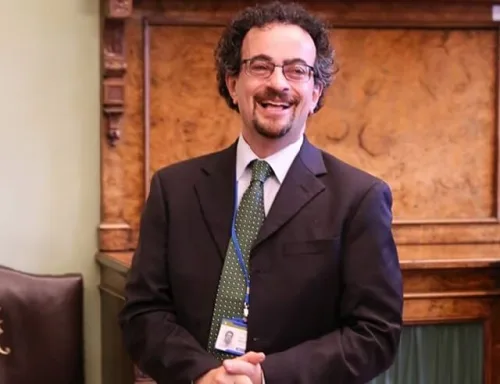
Jon Benjamin, the former UK Ambassador to Ghana, has voiced his disapproval regarding the statue erected in honor of former President Nana Addo Dankwa Akufo-Addo.
The diplomat, Jon Benjamin, has stated that erecting monuments in one’s own honor during their lifetime or time in office is inappropriate. His comments follow the vandalism of a statue of former President Akufo-Addo, which was unveiled in November 2024 in front of the Effia Nkwanta Hospital in Sekondi as part of his “Thank-You Tour” of the Western Region.
The unveiling of the statue received public backlash, with many questioning the former President’s contributions to the region. On January 13, 2025, the statue was reportedly destroyed by supporters of the opposition National Democratic Congress (NDC), sparking mixed reactions within the Western Region.
While some residents have condemned the vandalism as an act of disrespect, others believe it reflects public dissatisfaction.
The NDC, in response to the statue’s vandalism, has firmly denied any involvement or endorsement of the act. Party representatives highlighted that such behavior is contrary to their principles, which reject acts of violence and disrespect. They called for calm and urged the public to address political differences through peaceful and constructive means, rather than resorting to vandalism or other extreme actions.
Jon Benjamin, the former UK Ambassador to Ghana, voiced his disapproval of the statue’s erection in a post on X (formerly Twitter) on January 13, 2025. He stated, “No one should ever erect a statue of themselves while still alive, let alone while in office.” His remark quickly gained attention, sparking a broader debate on the ethics and appropriateness of self-honoring gestures, especially within the political context. Critics of such monuments argue that they can be seen as self-aggrandizing, while others question whether they are appropriate in a democratic society, where leaders are supposed to serve the public rather than celebrate their own legacy prematurely.
This statement has prompted a wider conversation on the implications of honoring politicians during their time in office, particularly regarding the potential for such actions to be viewed as political self-promotion rather than genuine recognition of accomplishments.










